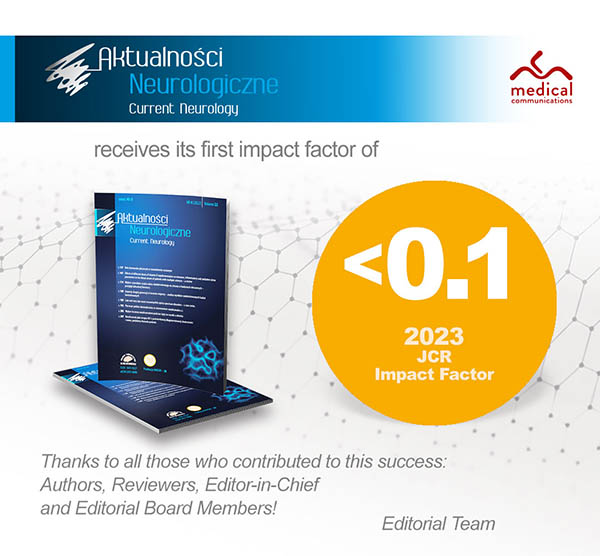The plasticity of the adult human brain cortex
Krystyna Rymarczyk1,2, Iwona Makowska3, Katarzyna Pałka-Szafraniec4
 Affiliation and address for correspondence
Affiliation and address for correspondenceThe human brain is characterized by high plasticity, a feature well-illustrated by many examples described in medical literature. Over the last decades, there has been a significant increase in our knowledge concerning the above, made possible by the appearance of new diagnostic tools, such as functional magnetic resonance imaging, or molecular biology. These methods allow to follow the changes taking place at various levels, including behaviour, anatomy, physiology, and especially at the cellular and subcellular level. Some studies confirm the important role of neuroplasticity, not only in childhood, when the potential is the greatest, and the central nervous system is still developing, but also at later stages of human life. It has now been established that the brain remains plastic at any age, also senile. Understanding the role of brain plasticity in the pathogenesis of diseases has the potential to develop new therapeutic techniques. Based on the latest scientific reports, it can be concluded that neuroplasticity is increasingly becoming the target of novel therapeutic techniques, which make use of the brain’s natural ability to regenerate or compensate lost function. An example would be the use of transcranial magnetic stimulation in neurorehabilitation of patients with structural brain damage, e.g. after stroke, or the targeted use of pharmacotherapy in selected mental illnesses. The purpose of this review is to present the available results of the research on the basic characteristics of brain plasticity, also in adulthood, and the potential influence of drugs on neuroplasticity








